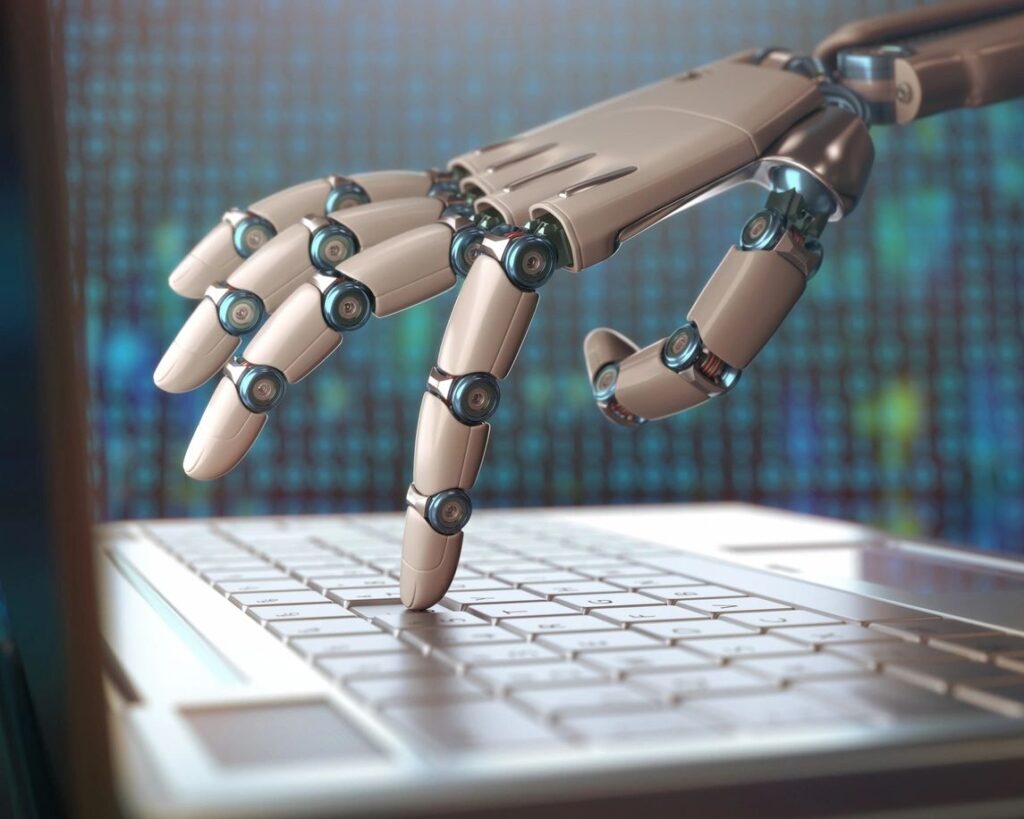
Artificial intelligence (AI) is rapidly transforming industries across the globe, and its impact on the economy is expected to grow exponentially over the next five years. As AI continues to advance, it will reshape how businesses operate, influence job markets, and drive innovation in ways we are only beginning to understand. Here’s a look at how AI is likely to impact the economy in the near future.
1. Automation and Workforce Transformation
One of the most significant impacts of AI will be on the workforce. AI-driven automation is set to streamline operations in various industries, from manufacturing and logistics to customer service and healthcare. While automation can increase productivity and reduce costs for businesses, it also poses challenges for the workforce.
- Job Displacement and Creation: Certain jobs, particularly those involving routine and repetitive tasks, are likely to be automated, leading to job displacement in some sectors. However, AI is also expected to create new jobs in areas such as AI development, data analysis, and machine learning operations. The challenge will be ensuring that the workforce is equipped with the skills needed for these emerging roles.
- Reskilling and Upskilling: As AI continues to integrate into different sectors, there will be a growing demand for workers with AI-related skills. Governments and organizations will need to invest in reskilling and upskilling programs to help workers transition into new roles and keep up with technological advancements.
2. Economic Growth and Productivity
AI has the potential to drive significant economic growth by enhancing productivity and efficiency across various industries. Companies that leverage AI effectively can expect to see substantial gains in output and profitability.
- Increased Efficiency: AI systems can process vast amounts of data quickly, allowing businesses to make more informed decisions, optimize operations, and reduce waste. For example, AI-driven predictive maintenance in manufacturing can minimize downtime and extend the life of machinery, resulting in cost savings and increased productivity.
- Innovation and New Markets: AI is also expected to spur innovation by enabling the development of new products, services, and business models. As AI technology continues to evolve, it will likely give rise to entirely new industries, contributing to economic growth and job creation.
3. Impact on Small and Medium-Sized Enterprises (SMEs)
While large corporations are already reaping the benefits of AI, the impact on small and medium-sized enterprises (SMEs) is expected to be transformative as well. Over the next five years, AI tools and solutions will become more accessible and affordable for SMEs, enabling them to compete with larger firms.
- Cost Reduction: AI-driven automation can help SMEs reduce operational costs by automating tasks such as customer support, inventory management, and marketing. This can level the playing field and allow smaller businesses to operate more efficiently.
- Enhanced Customer Experience: AI can help SMEs deliver personalized customer experiences, improving customer satisfaction and loyalty. For example, AI-powered chatbots can provide instant customer support, while machine learning algorithms can analyze customer behavior to offer tailored product recommendations.
4. Impact on Global Trade and Markets
AI will also influence global trade and markets by enhancing supply chain management, improving market analysis, and creating new opportunities for cross-border collaboration.
- Supply Chain Optimization: AI can improve supply chain efficiency by predicting demand, optimizing inventory levels, and identifying potential disruptions. This can help businesses reduce costs and improve their ability to respond to market changes.
- Market Analysis and Forecasting: AI-powered analytics can provide businesses with real-time insights into market trends, consumer behavior, and competitive dynamics. This can help companies make more informed decisions and adapt quickly to changing market conditions.
5. Ethical and Regulatory Considerations
As AI becomes more integrated into the economy, ethical and regulatory challenges will arise. Ensuring that AI is used responsibly and equitably will be crucial for maximizing its economic benefits.
- Data Privacy and Security: With AI systems relying on vast amounts of data, concerns around data privacy and security will continue to grow. Governments and businesses will need to establish robust regulations and safeguards to protect consumer data and prevent misuse.
- Bias and Fairness: AI systems are only as good as the data they are trained on. If AI algorithms are trained on biased data, they can perpetuate and even amplify existing inequalities. Addressing these issues will be critical to ensuring that AI benefits everyone, not just a select few.
6. The Future of AI-Driven Economies
Looking ahead, AI is poised to become a central pillar of economic development. Countries that invest heavily in AI research, infrastructure, and education will likely lead the global economy in the coming years.
- National AI Strategies: Many governments are already developing national AI strategies to position themselves as leaders in the AI-driven economy. These strategies often include investments in research and development, education, and public-private partnerships to accelerate AI adoption and innovation.
- Global Competition: As AI technology advances, competition between nations to lead in AI innovation will intensify. This competition could drive faster technological advancements but also raise concerns about economic inequality between AI leaders and laggards.
Over the next five years, AI will have a profound impact on the global economy. While it will bring significant benefits, such as increased productivity, innovation, and economic growth, it will also pose challenges related to job displacement, ethical concerns, and global competition. To navigate this rapidly evolving landscape, businesses, governments, and individuals must be proactive in embracing AI while addressing the associated challenges. The future of AI-driven economies will depend on our ability to harness the potential of AI responsibly and inclusively.
